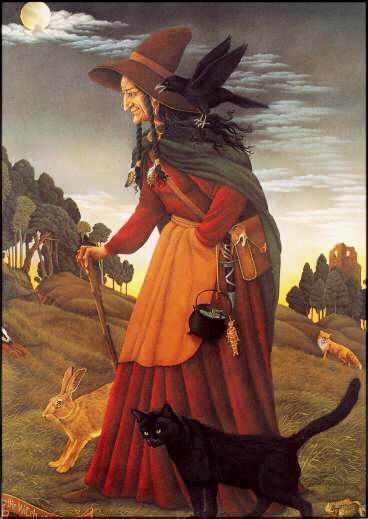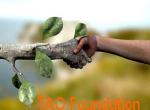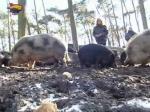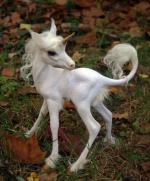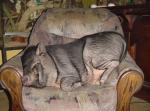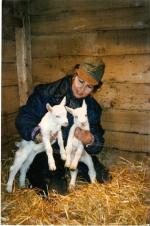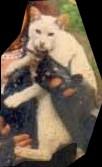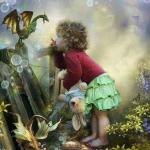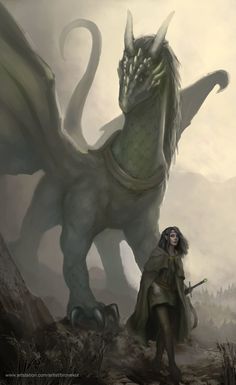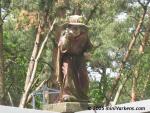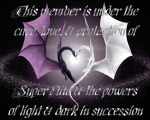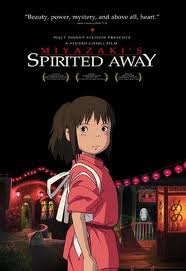
In the last years I’ve hardly watched a handful of films, but one recommended by a five-year-old girl I’ve watched several times. It’s an extraordinary movie, full of symbolism. I’m talking about Spirited Away, an animated movie from the Japanese director Miyazaki. If you haven’t watched it yet, make a note in your agenda. It doesn’t disappoint and speaks to both children and adults.
The movie follows the adventures of a girl in a village inhabited by ghosts, and her attempts to rescue her parents, turned into pigs by the machiavellian old woman Yubaba. Beneath apparently a children’s story, runs a deeper story of the most important of adventures: The conquering of ourselves.
The ghost town represents ordinary life. Old Yubaba represents our ego, as she lives on top of a bath house that represents our body and mind. She is constantly satisfying every whim of a huge baby, keeping him pampered, isolated from the outside in a room full of toys. This baby represents our emotions.
 Yubaba is always in the company of an evil bird, and in her room there are three identical heads jumping from place to place. Miyazaki has found a very visual way of representing the three developmental levels: reptilian, mammalian and human, symbolized by the bird, the giant baby and Yubaba respectively. In other words, our survival instincts, emotional reactions and intelligence.
Yubaba is always in the company of an evil bird, and in her room there are three identical heads jumping from place to place. Miyazaki has found a very visual way of representing the three developmental levels: reptilian, mammalian and human, symbolized by the bird, the giant baby and Yubaba respectively. In other words, our survival instincts, emotional reactions and intelligence.
The genius of Miyazaki is in symmetrically reflecting our existence onto a ghost town, so that our daily life during the day is represented by the frenzied activity that takes place in the village overnight. When the sun rises over the ghost town Yubaba flies away from the bath house, because when we go to sleep our egos seem to abandon us temporarily.
The bathhouse is home to a crowd of employees, serving the ghosts who arrive by boat every night to bathe. Logically, these employees represent the multitude of thoughts and mental activities we have during the day to attract the wealth of ghosts that represent all kind of stimuli that enter our senses. Most of these employees are frogs, which, by their amphibian quality, are the ideal choice to symbolize the transition between our thoughts (water) and the corresponding materialization in actions (land).
 Among the employees of the bathhouse there are three characters who help the girl: the young Haku, the old Kamaji and the maid Lin. Each one represents a key aspect needed for success in our spiritual conquest. Haku is a young man with powers, respected by all who live in the bathhouse, though not at ease with his situation because Yubaba has stolen his identity. He represents our potential for transformation; in fact, he is able to transform into a dragon. Between Haku and Chihiro arises a deep friendship, a pure love between the spiritual yearning that she represents and the capacity for transformation he embodies, a union that makes it possible to transcend the fictional reality of the world.
Among the employees of the bathhouse there are three characters who help the girl: the young Haku, the old Kamaji and the maid Lin. Each one represents a key aspect needed for success in our spiritual conquest. Haku is a young man with powers, respected by all who live in the bathhouse, though not at ease with his situation because Yubaba has stolen his identity. He represents our potential for transformation; in fact, he is able to transform into a dragon. Between Haku and Chihiro arises a deep friendship, a pure love between the spiritual yearning that she represents and the capacity for transformation he embodies, a union that makes it possible to transcend the fictional reality of the world.
Haku advises Chihiro to visit Kamaji in the boilers room at the lowest level of the bathhouse, where he works preparing aromatic waters. The old man represents the body in service of mind, working hard to meet all its requirements. Even the cells are pictured as funny black balls in charge of throwing rocks of coal into the boiler.
Kamaji tells Chihiro to go up and talk to Yubaba because she is the one who can decide whether the human girl can stay or not. To reach the top of the house where Yubaba dwells, Chihiro has to ascend in elevators. She does so in the company of Lin, the young maid, who is always grumbling but also willing to work and help out where needed. This young lady represents our capacity for sacrifice and effort.
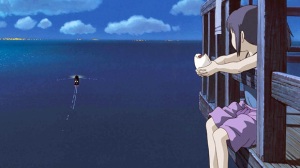 Yubaba reluctantly agrees to hire the girl, stealing her name and assuming that the hard work will cause her to forget it completely, in which case she will have to stay as a slave. It is interesting how Miyazaki symbolizes the power of the ego over the mind and body through the ownership of personal names, masterfully illustrating that the power of the ego is conceptual, intellectual.
Yubaba reluctantly agrees to hire the girl, stealing her name and assuming that the hard work will cause her to forget it completely, in which case she will have to stay as a slave. It is interesting how Miyazaki symbolizes the power of the ego over the mind and body through the ownership of personal names, masterfully illustrating that the power of the ego is conceptual, intellectual.
Chihiro’s first job is to meet a huge smelly ghost. It is time to, spiritually speaking, roll up our sleeves and begin to clean our minds and foul habits. With the effort of all, including Yubaba, they manage to cleanse the huge amount of crap that the ghost had attracted to himself, and he is now transformed into the shining spirit of a river. The thankful spirit rewards the girl with a magical ball, which she thinks of using to release her parents. This episode represents the first and hardest of spiritual works: to cleanse our minds and correct our bad habits. The reward is a new power to carry on.
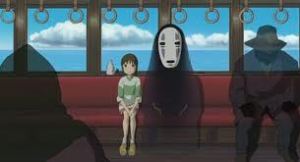 The second of the ghosts she has to deal with does not seem so terrible, in fact, she is who invites him to enter the bathhouse. It is a black shadow without a face that has the ability to generate gold nuggets. This draws the attention of all the employees who are eager to attend him in exchange for the gold. But the ghost, as he devours the food, begins to increase in size and rude manners to the point of swallowing up a couple of the employees. The situation gets out of control and jeopardizes the bathhouse. However, Chihiro is not tempted by his gold; on the contrary, she feels pity and feeds the ghost with half of the magic ball she got. The ghost begins to vomit until he is totally purified, converted back into a shadow that now follows the child submissively. Logically, this episode represents the self-control of our impulses and appetites with the power of our cleansed minds.
The second of the ghosts she has to deal with does not seem so terrible, in fact, she is who invites him to enter the bathhouse. It is a black shadow without a face that has the ability to generate gold nuggets. This draws the attention of all the employees who are eager to attend him in exchange for the gold. But the ghost, as he devours the food, begins to increase in size and rude manners to the point of swallowing up a couple of the employees. The situation gets out of control and jeopardizes the bathhouse. However, Chihiro is not tempted by his gold; on the contrary, she feels pity and feeds the ghost with half of the magic ball she got. The ghost begins to vomit until he is totally purified, converted back into a shadow that now follows the child submissively. Logically, this episode represents the self-control of our impulses and appetites with the power of our cleansed minds.
The young Haku, wishing to gain his freedom and that of the girl, steals a talisman from another key character: the twin sister of Yubaba, who is physically identical but lives based on the opposite principles. Yubaba’s sister represents the other side of our ego, the result of transforming intelligence into wisdom. The sister comes into the rooms of Yubaba guided by the girl, without her knowing. Once inside, she transforms the giant baby into a mouse, and the wicked bird into a fly. The effect of wisdom when it enters our mind is just that, to cut through our childish emotions and negative attitudes until they become harmless aspects of our personality.
 Haku, transformed into a dragon, is seriously injured during the theft of the talisman. Chihiro gives him the other half of the magic ball to heal his injuries and decides to return the talisman to Yubaba’s sister. To do so, she has to take a long train journey on the waters surrounding the ghost town, in the company of the mouse, the fly and the no-face ghost. Finally, they arrive at a lonely train station where they are greeted by a candle that precedes them up to where Yubaba’s sister dwells in the midst of nature, in a country house, simple and welcoming. The sister received them with hospitality and invites the faceless ghost to stay for good. This episode represents the long and lonely progress until one finally encounters the light of wisdom and tames completely the sensual appetites.
Haku, transformed into a dragon, is seriously injured during the theft of the talisman. Chihiro gives him the other half of the magic ball to heal his injuries and decides to return the talisman to Yubaba’s sister. To do so, she has to take a long train journey on the waters surrounding the ghost town, in the company of the mouse, the fly and the no-face ghost. Finally, they arrive at a lonely train station where they are greeted by a candle that precedes them up to where Yubaba’s sister dwells in the midst of nature, in a country house, simple and welcoming. The sister received them with hospitality and invites the faceless ghost to stay for good. This episode represents the long and lonely progress until one finally encounters the light of wisdom and tames completely the sensual appetites.
Haku appears soon after, transformed into a beautiful dragon, on which Chihiro, the mouse and the fly return back to the ghost town. Whilst flying, she recognizes the true identity of Haku as the spirit of a river in which she nearly drowned as a child. When she pronounces his name, Haku remembers that is his real name and doing so breaks his curse. When a person is in total control of her emotions, and her desires are governed now by wisdom, she can recognize her true divine nature.
The adventure is about to end, but Yubaba still poses a last test. She asks Chihiro to identify her parents among a group of pigs. Chihiro answers that none of them is her parents, and, indeed, all pigs were enchanted servants. At that instant, the spiritual yearning of the person has achieved its goal, and can never be again deceived by the ego and his servants the thoughts. Now that person is free.
 Chihiro returns to the village entrance, to the starting point of the adventure, where her parents are waiting, unaware of anything that has passed. The person appears to be the same, but inside she is not; her internal transformation is so profound and irreversible that her actions will always in future be guided by wisdom.
Chihiro returns to the village entrance, to the starting point of the adventure, where her parents are waiting, unaware of anything that has passed. The person appears to be the same, but inside she is not; her internal transformation is so profound and irreversible that her actions will always in future be guided by wisdom.
Note: It’s possible to use a similar method to interpret the symbolism of many cultural phenomena. If you think this analysis was valid, you’ll find equally revealing my research on the classical myths, or the purpose of mankind’s oldest monuments. These interpretations and many others appear in my book Voyage Zero.
I also did a comparative between Spirited Away and Moana, the movie of Disney.
Like this:
Like Loading...
 Brandweer BZO @BrandweerBZO
Brandweer BZO @BrandweerBZO

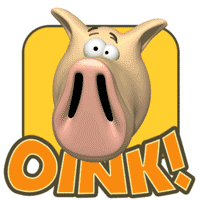

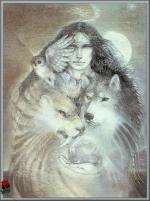 Ik ben Leny, en gebruik soms ook wel de schuilnaam Bosheks.
Ik ben Leny, en gebruik soms ook wel de schuilnaam Bosheks.
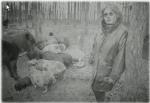
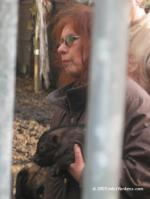
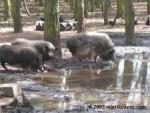



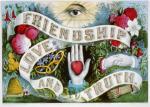
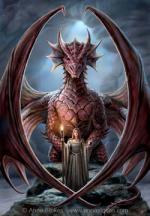


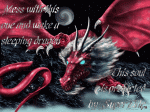
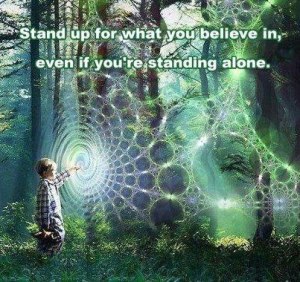




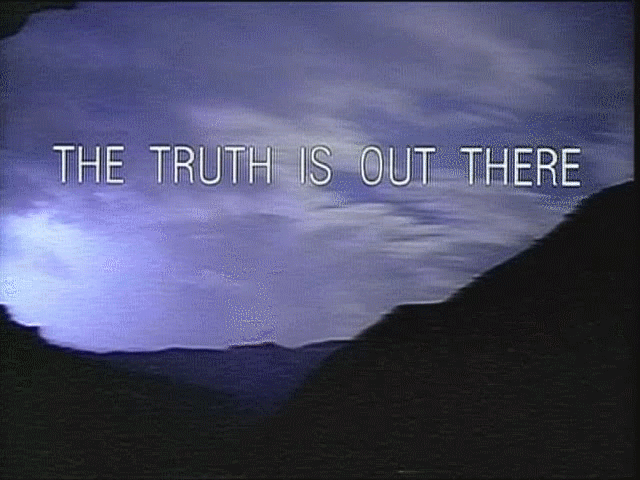
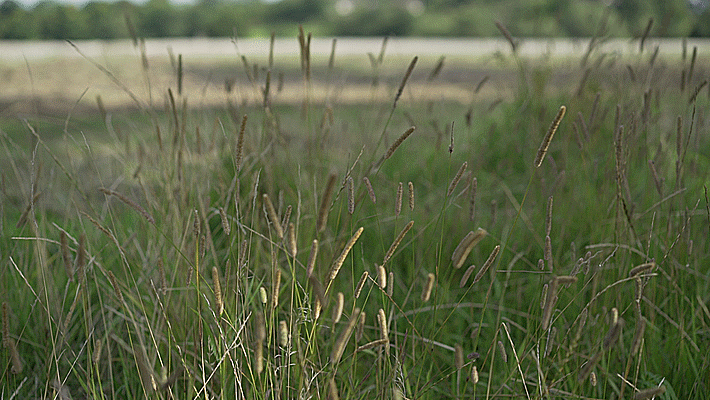
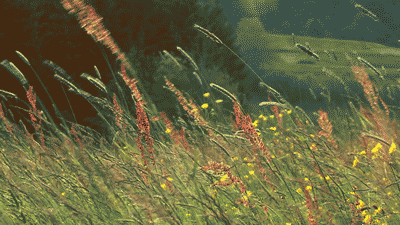

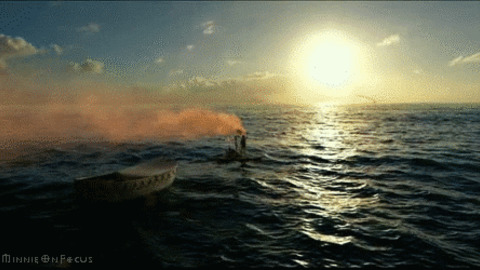




 Door:
Door: 






















.jpg)
.jpg)



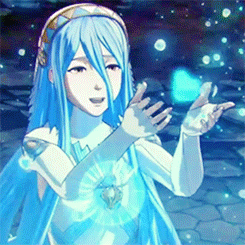


 Yubaba is always in the company of an evil bird, and in her room there are three identical heads jumping from place to place. Miyazaki has found a very visual way of representing the three developmental levels: reptilian, mammalian and human, symbolized by the bird, the giant baby and Yubaba respectively. In other words, our survival instincts, emotional reactions and intelligence.
Yubaba is always in the company of an evil bird, and in her room there are three identical heads jumping from place to place. Miyazaki has found a very visual way of representing the three developmental levels: reptilian, mammalian and human, symbolized by the bird, the giant baby and Yubaba respectively. In other words, our survival instincts, emotional reactions and intelligence. Among the employees of the bathhouse there are three characters who help the girl: the young Haku, the old Kamaji and the maid Lin. Each one represents a key aspect needed for success in our spiritual conquest. Haku is a young man with powers, respected by all who live in the bathhouse, though not at ease with his situation because Yubaba has stolen his identity. He represents our potential for transformation; in fact, he is able to transform into a dragon. Between Haku and Chihiro arises a deep friendship, a pure love between the spiritual yearning that she represents and the capacity for transformation he embodies, a union that makes it possible to transcend the fictional reality of the world.
Among the employees of the bathhouse there are three characters who help the girl: the young Haku, the old Kamaji and the maid Lin. Each one represents a key aspect needed for success in our spiritual conquest. Haku is a young man with powers, respected by all who live in the bathhouse, though not at ease with his situation because Yubaba has stolen his identity. He represents our potential for transformation; in fact, he is able to transform into a dragon. Between Haku and Chihiro arises a deep friendship, a pure love between the spiritual yearning that she represents and the capacity for transformation he embodies, a union that makes it possible to transcend the fictional reality of the world. Yubaba reluctantly agrees to hire the girl, stealing her name and assuming that the hard work will cause her to forget it completely, in which case she will have to stay as a slave. It is interesting how Miyazaki symbolizes the power of the ego over the mind and body through the ownership of personal names, masterfully illustrating that the power of the ego is conceptual, intellectual.
Yubaba reluctantly agrees to hire the girl, stealing her name and assuming that the hard work will cause her to forget it completely, in which case she will have to stay as a slave. It is interesting how Miyazaki symbolizes the power of the ego over the mind and body through the ownership of personal names, masterfully illustrating that the power of the ego is conceptual, intellectual. The second of the ghosts she has to deal with does not seem so terrible, in fact, she is who invites him to enter the bathhouse. It is a black shadow without a face that has the ability to generate gold nuggets. This draws the attention of all the employees who are eager to attend him in exchange for the gold. But the ghost, as he devours the food, begins to increase in size and rude manners to the point of swallowing up a couple of the employees. The situation gets out of control and jeopardizes the bathhouse. However, Chihiro is not tempted by his gold; on the contrary, she feels pity and feeds the ghost with half of the magic ball she got. The ghost begins to vomit until he is totally purified, converted back into a shadow that now follows the child submissively. Logically, this episode represents the self-control of our impulses and appetites with the power of our cleansed minds.
The second of the ghosts she has to deal with does not seem so terrible, in fact, she is who invites him to enter the bathhouse. It is a black shadow without a face that has the ability to generate gold nuggets. This draws the attention of all the employees who are eager to attend him in exchange for the gold. But the ghost, as he devours the food, begins to increase in size and rude manners to the point of swallowing up a couple of the employees. The situation gets out of control and jeopardizes the bathhouse. However, Chihiro is not tempted by his gold; on the contrary, she feels pity and feeds the ghost with half of the magic ball she got. The ghost begins to vomit until he is totally purified, converted back into a shadow that now follows the child submissively. Logically, this episode represents the self-control of our impulses and appetites with the power of our cleansed minds. Haku, transformed into a dragon, is seriously injured during the theft of the talisman. Chihiro gives him the other half of the magic ball to heal his injuries and decides to return the talisman to Yubaba’s sister. To do so, she has to take a long train journey on the waters surrounding the ghost town, in the company of the mouse, the fly and the no-face ghost. Finally, they arrive at a lonely train station where they are greeted by a candle that precedes them up to where Yubaba’s sister dwells in the midst of nature, in a country house, simple and welcoming. The sister received them with hospitality and invites the faceless ghost to stay for good. This episode represents the long and lonely progress until one finally encounters the light of wisdom and tames completely the sensual appetites.
Haku, transformed into a dragon, is seriously injured during the theft of the talisman. Chihiro gives him the other half of the magic ball to heal his injuries and decides to return the talisman to Yubaba’s sister. To do so, she has to take a long train journey on the waters surrounding the ghost town, in the company of the mouse, the fly and the no-face ghost. Finally, they arrive at a lonely train station where they are greeted by a candle that precedes them up to where Yubaba’s sister dwells in the midst of nature, in a country house, simple and welcoming. The sister received them with hospitality and invites the faceless ghost to stay for good. This episode represents the long and lonely progress until one finally encounters the light of wisdom and tames completely the sensual appetites. Chihiro returns to the village entrance, to the starting point of the adventure, where her parents are waiting, unaware of anything that has passed. The person appears to be the same, but inside she is not; her internal transformation is so profound and irreversible that her actions will always in future be guided by wisdom.
Chihiro returns to the village entrance, to the starting point of the adventure, where her parents are waiting, unaware of anything that has passed. The person appears to be the same, but inside she is not; her internal transformation is so profound and irreversible that her actions will always in future be guided by wisdom.










